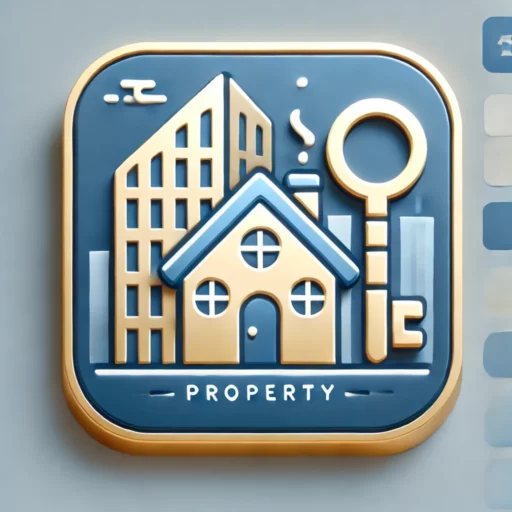Managing a rental property is no small feat. It requires attention to detail, constant communication with tenants, and knowledge of laws and regulations. Whether you’re a seasoned landlord or new to the game, avoiding common mistakes can mean the difference between a profitable investment and a never-ending headache. In this article, we will cover five critical mistakes to avoid when managing a rental property, ensuring that you maximize your property’s potential.
Introduction
When it comes to rental property, a smooth management experience isn’t guaranteed. Many property owners make mistakes that cost them time, money, and sometimes even their property’s value. In this guide, we’ll highlight five of the most common pitfalls landlords face and provide actionable tips on how to avoid them.
Being proactive in addressing these mistakes can help you maintain a steady rental income and protect your investment.
Understanding Rental Property Management
What Does It Entail?
Property management involves overseeing all aspects of a rental property, from tenant selection to property maintenance and financial oversight. Whether you’re handling these tasks yourself or outsourcing to a professional property manager, understanding the scope of property management is crucial for success.
The Role of a Property Manager
A property manager’s job goes beyond just collecting rent. They are responsible for tenant screening, setting rental prices, maintaining the property, handling legal issues, and ensuring compliance with local rental laws. Having a qualified professional can help reduce the chance of making critical mistakes.
Mistake 1: Not Screening Tenants Thoroughly
One of the first steps in managing a rental property is finding the right tenants. Failing to thoroughly screen potential renters can lead to numerous issues, including late payments, property damage, or even eviction.
The Importance of Tenant Screening
Tenant screening should never be rushed. It involves background checks, credit checks, verifying income, and checking past rental history. This process helps you identify tenants who are likely to pay their rent on time and take care of the property.
Common Pitfalls of Skipping This Step
Skipping or rushing through the screening process can lead to accepting tenants who may not meet your property’s standards. This could result in late rent payments, disputes over property damage, or even legal trouble. To avoid these risks, always follow a thorough tenant screening process, which can also be aided by understanding first-time buyer tips for new landlords looking to start strong.
Mistake 2: Ignoring Proper Lease Agreements
A lease agreement is the backbone of the landlord-tenant relationship. Not having a solid, legally binding lease agreement is one of the biggest mistakes a landlord can make.
Key Elements of a Lease Agreement
A well-drafted lease should clearly define the terms of the tenancy, including rent amount, payment due dates, responsibilities for repairs, and rules regarding property use. You should also include clauses that cover what happens in the event of late payments, eviction processes, and tenant disputes.
Risks of Using Generic or Inadequate Leases
Using a generic lease agreement, or worse, not having one at all, can lead to confusion and legal problems down the line. Without a proper lease, you have no legal recourse if a tenant violates terms. You might also miss out on essential clauses that protect you as a property owner, such as those concerning rental property laws or financial disputes.

Mistake 3: Failing to Maintain the Property
Neglecting regular property maintenance can be a costly mistake. A well-maintained property not only attracts good tenants but also retains its value over time.
Preventive Maintenance and Repairs
Routine maintenance, such as plumbing checks, HVAC servicing, and regular inspections, can prevent major issues from arising. Neglecting these small repairs can lead to bigger, more expensive problems later. An effective property manager will stay on top of scheduled maintenance, ensuring the property is always in good shape.
The Consequences of Neglect
Failure to keep up with property maintenance can lead to tenant dissatisfaction and, in some cases, legal issues. For instance, if a tenant’s complaints about plumbing or electrical issues go unaddressed, you could face complaints or even lawsuits. It’s important to ensure the property is always safe and habitable.
For example, learning about property investment strategies can help you focus on maintaining the property’s long-term value, ensuring it remains profitable.
Mistake 4: Overlooking Legal Responsibilities
Every landlord has legal obligations to their tenants. Failing to understand and comply with these responsibilities can result in hefty fines or lawsuits.
Understanding Landlord-Tenant Laws
Each region has different laws governing rental properties, such as those related to eviction processes, security deposits, and tenant rights. As a landlord, you must stay updated on these regulations to avoid legal pitfalls.
Legal Issues Property Managers Should Be Aware Of
Some key areas of concern for landlords include rental laws, tenant discrimination, and eviction procedures. Not understanding these laws could lead to costly mistakes. For instance, improperly handling an eviction could result in a lawsuit or fines. Therefore, ensure your lease agreements and practices are in compliance with local, state, and federal laws.
Mistake 5: Not Monitoring Cash Flow
Proper financial oversight is essential in rental property management. Not monitoring your cash flow could result in lost income or financial mismanagement.
The Importance of Financial Oversight
To maintain profitability, it’s important to track income and expenses related to your property. This includes rent payments, maintenance costs, and any legal fees that may arise. Without a clear financial picture, you may fail to notice areas where you could improve profitability.
How Poor Cash Flow Management Can Impact Your Investment
If you don’t keep an eye on your cash flow, you might be caught off guard by unexpected expenses, such as repairs or vacancies. This can quickly affect your bottom line. A strong understanding of ROI and other financial metrics will help you make better decisions regarding property management.
For more information, you can explore tips on property selling and how to optimize your investments.
How to Avoid These Mistakes
Managing a rental property effectively requires careful attention to each aspect of the process. Here are some proactive steps you can take to avoid the common mistakes mentioned above:
- Screen tenants thoroughly to ensure they meet your criteria.
- Use a well-written lease agreement that covers all necessary clauses.
- Maintain the property regularly to avoid costly repairs.
- Stay informed about landlord-tenant laws and ensure your practices comply.
- Keep track of your financial situation to ensure profitability.
By following these best practices, you’ll be on your way to managing a successful rental property.
Conclusion
In conclusion, avoiding these five mistakes when managing a rental property is crucial to ensuring long-term success. By focusing on thorough tenant screening, having a solid lease agreement, maintaining the property, understanding legal responsibilities, and managing finances carefully, you’ll protect your investment and avoid costly errors.
Proper property management may seem like a lot of work, but with attention to detail and a proactive approach, you can maximize your rental income and build a successful real estate portfolio.
FAQs
- What is the most important thing to consider when managing a rental property?
The most important thing is to thoroughly screen tenants to avoid issues with payments and property maintenance. - Can I manage my rental property without a property manager?
Yes, many landlords choose to manage their properties themselves, but it requires a good understanding of tenant laws, maintenance, and financial management. - How often should I perform maintenance on my rental property?
Regular maintenance, such as seasonal checks and addressing tenant complaints, should be done at least quarterly to prevent larger issues. - What should be included in a rental lease agreement?
Key elements include rent amount, payment due dates, maintenance responsibilities, and clauses on tenant rights and responsibilities. - What legal responsibilities do landlords have?
Landlords are required to maintain safe living conditions, comply with local rental laws, and respect tenant rights. - How can I increase my rental property’s profitability?
By maintaining the property, keeping up with market trends, and ensuring timely rent collection, you can maximize profitability. - What are the signs that I need to hire a property manager?
If managing the property becomes too time-consuming or if you’re struggling with legal or financial aspects, it may be time to hire a professional property manager.


